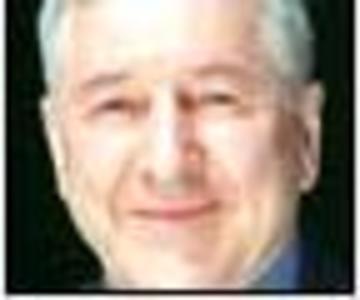
.The separatist movement turned out jubilantly on Sunday in Montreal to celebrate the 20th anniversary of that day – Aug. 13, 1990 – when Bloc Québécois Leader Gilles Duceppe was first elected to Parliament.
There was reason for the festive mood. In all six federal elections since 1993, the Bloc swept a majority of Quebec's 75 seats – as it would again were an election held tomorrow.
Then, an opinion poll in Saturday's La Presse had the Bloc's Siamese sister, the Parti Québécois, leading the Liberals 39 per cent to 31 per cent. Among French speakers, the gap was 45 per cent to 24 per cent, portending a majority PQ government. And 66 per cent wanted Premier Jean Charest to step down.
The Bloc can be proud. But credit for impressive separatist performances should also go to the Bloc's silent partner, the Quebec Liberal Party. The Liberals, under Robert Bourassa, Claude Ryan, Daniel Johnson Jr. and now Mr. Charest, created the conditions for the separatist parties to surge.
Anyone who doubts this symbiotic relationship need only consult the QLP's website. There, the Liberals explain the eight values that define their party : individual freedoms, identification with Quebec, economic development, social justice, respect for civil society, democracy a hallmark of political action, intergenerational equity, and ties to Canada.
So one might expect a celebration of federalism as a fundamental value that distinguishes the QLP from the separatists, not to mention an appreciation of Quebec's participation in Canada, the country recognized as among the most socially developed on Earth. But there's not a single word of praise for Canada or federalism in the 2,260-word essay. Nowhere is Canada recognized as the country of Quebeckers.
The section Ties to Canada deals exclusively with the QLP's conflicts with the Canadian government. Here are examples of the party's boasts : "In 1970 [really in 1971], under Robert Bourassa, it refused to endorse the Victoria Charter because it did not respond to the proposals put forward by Quebec concerning the division of jurisdiction in areas of social policy. … In 1997, it opposed the reference to the Supreme Court by Ottawa on secession, arguing that the constitutional future of Quebec was above all a political question that must be resolved in Quebec. In 1998, it opposed Bill C-20 [the Clarity Act], which imposed on Quebec rules that excessively restrained the province in the area of constitutional referendums."
In other words, the QLP asserts the right to secede unilaterally from Canada. The Supreme Court be damned when it finds otherwise. And the QLP perpetuates an urban myth : "In 1981, in extremely difficult circumstances, the Liberal Opposition in the National Assembly joined with the PQ government of that time to say no to the unilateral patriation of the Constitution that was being planned."
It's been endlessly repeated by politicians and pundits that the National Assembly voted unanimously to oppose the 1982 Canada Act that patriated the Constitution and created the Charter of Rights and Freedoms. It's totally untrue.
Three votes were held in the National Assembly on the issue. In November of 1980, after the referendum on sovereignty association, when Pierre Trudeau proposed to ask Westminster to patriate the Constitution, René Lévesque proposed a motion asking the U.K. "not to follow through on this unilateral undertaking." The Liberals under Mr. Ryan voted against.
In September of 1981, after the Supreme Court had found it legal but unconstitutional in a conventional sense to patriate the Constitution with only the support of Ontario and New Brunswick, Mr. Lévesque again presented a motion of opposition. This time, the Liberals supported the motion.
Mr. Trudeau convened the premiers and obtained the consent of all but Mr. Lévesque. He then proceeded with the Canada Act, meeting the Supreme Court's test of provincial consensus. Mr. Lévesque again moved to oppose patriation. This time, when the National Assembly voted on the actual patriation bill, 38 Ryan Liberals voted against Mr. Lévesque's motion.
The Supreme Court would rule in December of 1982 : "The Constitution Act, 1982 is now in force. Its legality is neither challenged nor assailable. … Even assuming therefore that there was a conventional requirement for the consent of Quebec under the old system, it would no longer have any object or force."
But the QLP constantly claims that the Canada Act is illegitimate, that Quebec "is not in the Constitution," and that the patriation is an open sore, rejected by the entire National Assembly. Quebec, aggrieved, is above the law.
On April 18, 2002, the 20th anniversary of patriation, Mr. Charest's Liberals backed this motion by then-premier Bernard Landry : "The National Assembly reaffirms that it never adhered to the constitutional law of 1982 that resulted in diminishing the powers and the rights of Québec without the consent of the Québec government and of the National Assembly and that it is still unacceptable to Quebec."
No wonder that the Bloc and the PQ continue to prosper.
The Bloc's silent partner
The Quebec Liberal Party is complicit in separatism's continued appeal to Quebeckers
Le Bloc Québécois a 20 ans!

William Johnson53 articles
William Johnson, a Quebec journalist, is a former president of Alliance Quebec



















Laissez un commentaire Votre adresse courriel ne sera pas publiée.
Veuillez vous connecter afin de laisser un commentaire.
Aucun commentaire trouvé